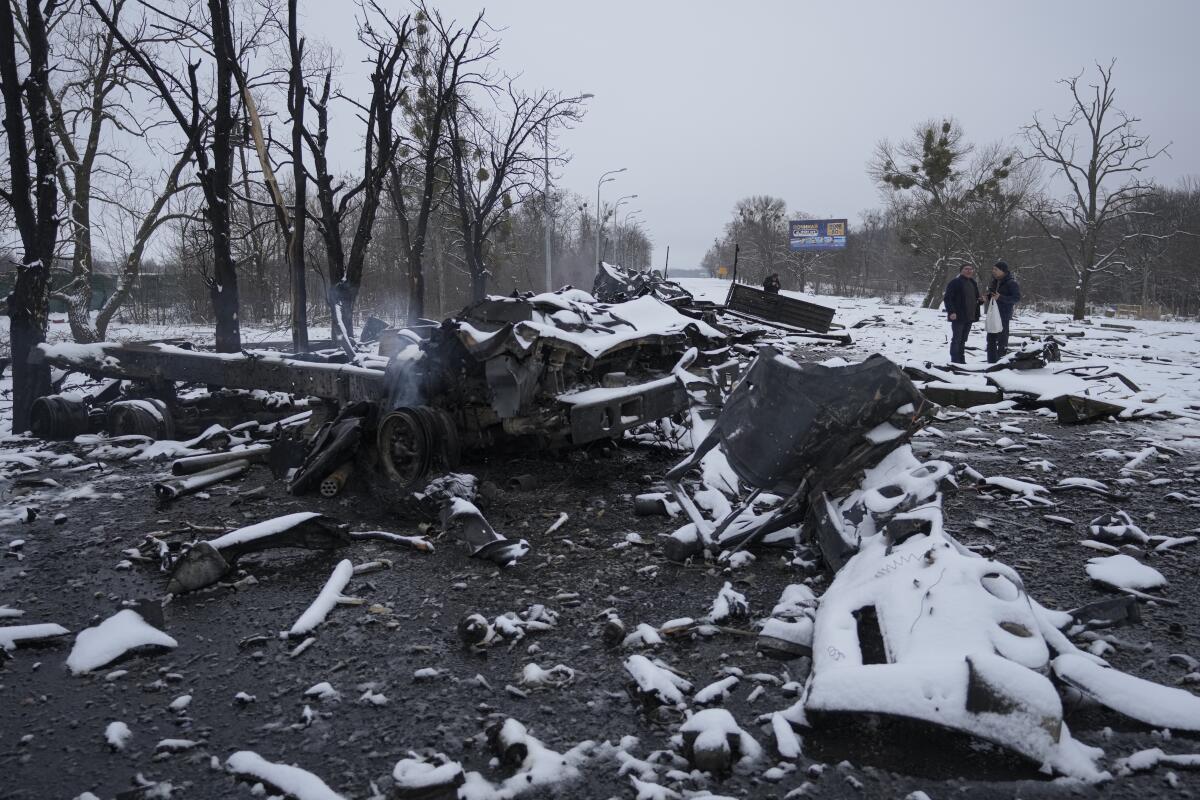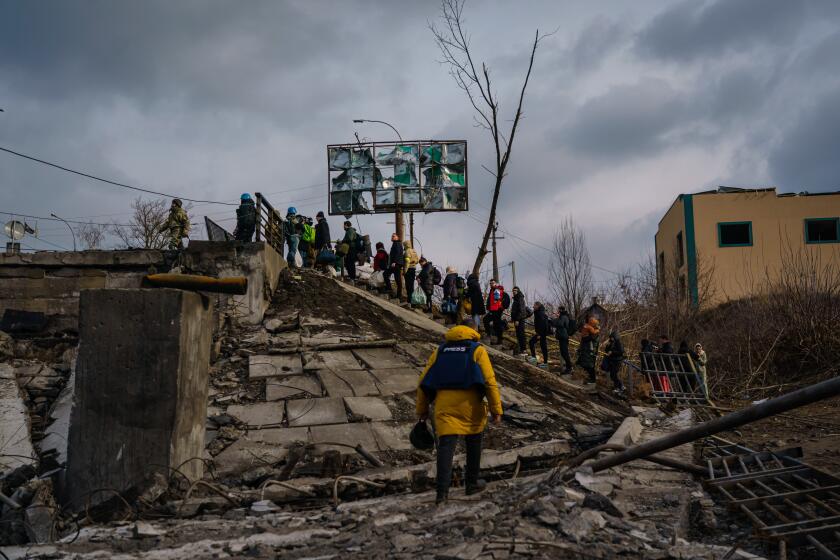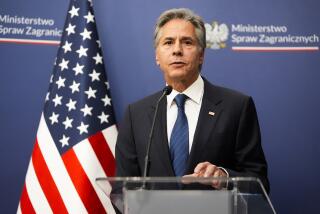Apple, Netflix, TikTok strike back against Russian state media content

Several prominent Hollywood and Silicon Valley businesses are distancing themselves from Russian state programming amid concerns about the proliferation of Russian propaganda and disinformation surrounding the invasion of Ukraine.
Apple, Netflix, TikTok, and Facebook’s parent company, Meta, are the latest U.S. media companies to respond to the crisis in Eastern Europe.
Netflix, which registered as an audiovisuals service in Russia in December, was expected to comply with a law that would require the streaming service to carry 20 Russian federal television channels, including Channel One and programming from the Russian Orthodox Church in Russia, according to the Moscow Times. The outlet reported on Dec. 21 that the law would affect Netflix in March.
On Monday, Netflix said it would not follow the rule.
“Given the current situation, we have no plans to add these channels to our service,” Netflix said in a statement.
The company paused all future projects and acquisitions from Russia, according to a source close to Netflix not authorized to comment. The company has four Russian language projects that are either in production or post production. Filming was recently paused for one of the projects, the detective drama series “ZATO,” the source said.
Apple on Tuesday said it is pausing all product sales in Russia and limiting Apple Pay and other services in the country. Outside of Russia, news outlets RT and Sputnik, which are widely believed to be controlled by the Russian government, are no longer available for download on the App Store. Apple said it has also disabled traffic incidents on Apple Maps in Ukraine.
“We are deeply concerned about the Russian invasion of Ukraine and stand with all of the people who are suffering as a result of the violence,” Apple said in a statement. “We will continue to evaluate the situation and are in communication with relevant governments on the actions we are taking. We join all those around the world who are calling for peace.”
The support from U.S. businesses to Ukraine comes at a time when public sentiment against Russia’s invasion remains strong and Russia’s currency continues to decline in value against the dollar.
“It is a global condemnation of what Russia has done,” said Rob Enderle, principal analyst at advisory services firm Enderle Group. “The optics for actively selling in a country that is now so broadly hated would probably do their brand more damage than the sales would do them good.”
In Russia and the U.S., a Kremlin-backed propaganda effort seeks to build support for — or at least muddy the waters around — Putin’s invasion of Ukraine.
Several other companies have also taken action against Russia-affiliated outlets.
Meta, the parent company of popular social media apps Facebook and Instagram, is restricting access to Russian state media, such as RT, in Ukraine and throughout the European Union.
RT, which is financed by the Russian Federation, launched its first international news channel in 2005 and now is available in more than 100 countries, according to its website. The media company says it has nine TV channels and claims it “creates news with an edge for viewers who want to Question More.”
“RT covers stories overlooked by the mainstream media, provides alternative perspectives on current affairs, and acquaints international audiences with a Russian viewpoint on major global events,” the outlet says on its website.
But politicians and industry observers have raised concerns that RT harbors Russian propaganda.
“It is definitely the mouthpiece of the Russian government,” Kathryn Stoner, a Stanford University political science professor and author of “Russia Resurrected: Its Power and Purpose in a New Global Order,” told The Times last week.
Meta’s vice president for global affairs Nick Clegg said that the company is now demoting content posted by state-controlled Russian media, “making them harder to find across [the company’s] platforms,” and has restricted access to RT and Sputnik in Ukraine and the European Union.
The company’s priority, Clegg said, “has been to ensure that people are able to continue using our apps and services safely and securely,” including in Russia. The company has already received blowback from Russian authorities for fact-checking posts made by Russian state-run media and has blocked that media from earning ad revenue on its platform.
RT and Sputnik did not immediately respond to requests for comment. In a statement given to CNN, RT’s Deputy Editor in Chief Anna Belkina, pushed back against criticism by others of her outlet.
“When it comes to the Russian voice, or just a different perspective, it is not allowed to exist in the free media space,” Belkina said in a statement, cited by CNN.
Times staffers Nabih Bulos and Marcus Yam are on the ground in Ukraine covering the invasion by Russia. Here’s what they are seeing firsthand.
Snap, the parent company of social media app Snapchat, on Tuesday said it has stopped all ads running in Russia, Belarus and Ukraine and is “halting advertising sales to all Russian and Belarusian entities and are complying with all sanctions targeting Russian businesses and individuals.”
TikTok confirmed Tuesday that it has geographically blocked access to RT and Sputnik media accounts in the European Union.
Spotify closed its Russia office and has removed RT and Sputnik content in the EU and other markets. The company declined to say how many people work there.
“Our team has reviewed thousands of pieces of content since the start of the war, and has restricted the discoverability of shows owned and operated by Russian state-affiliated media,” Spotify said in a statement.
YouTube said it too is blocking channels connected to RT and Sputnik across Europe “effective immediately” because of the war in Ukraine. YouTube’s parent company, Google confirmed that Russian state-funded media will no longer be eligible to be on Google News and blocked apps connected to RT and Sputnik from the Google Play Store in Europe. Google also temporarily disabled some features on Google Maps in Ukraine such as how busy places are “to help protect the safety of local communities and their citizens.”
Roku on Tuesday said it would remove RT from the Roku Channel Store.
DirecTV on Tuesday said it will no longer offer RT in the U.S. on DirecTV Satellite and U-Verse.
“In line with our previous agreement with RT America, we are accelerating this year’s contract expiration timeline and will no longer offer their programming effective immediately,” DirecTV said in a statement.
But some critics say that tech companies could be taking stronger steps against Russian disinformation and warn that the misleading content could pop up elsewhere.
In a Facebook post on Tuesday, RT acknowledged it was being blocked by tech companies and encouraged people to see its content on a different platform, Odysee.
“We are alive and kicking on Odysee’s free speech video platform, continuing to promote freedom over censorship, truth over narrative,” RT said in a Facebook post Tuesday.
Other entertainment companies are taking a stand by suspending the distribution of their content from Russia.
Walt Disney Co., Universal Pictures and Sony said they would pause their theatrical releases in Russia, and Warner Bros. said it wouldn’t release its upcoming movie “The Batman” in Russia. Paramount Pictures said it would also pause theatrical releases of upcoming films in Russia, including “The Lost City” and “Sonic the Hedgehog 2.”
The Motion Picture Assn. condemned Russia’s invasion of Ukraine.
“On behalf of our member companies, who lead the film, TV and streaming industry, we express our strongest support for Ukraine’s vibrant creative community who, like all people, deserve to live and work peacefully,” the association said in a statement. “We will continue to monitor the situation, working closely with our members and partners throughout the global creative sector.”
Times staff writer Meg James and Ryan Faughnder contributed to this report.
More to Read
Inside the business of entertainment
The Wide Shot brings you news, analysis and insights on everything from streaming wars to production — and what it all means for the future.
You may occasionally receive promotional content from the Los Angeles Times.














